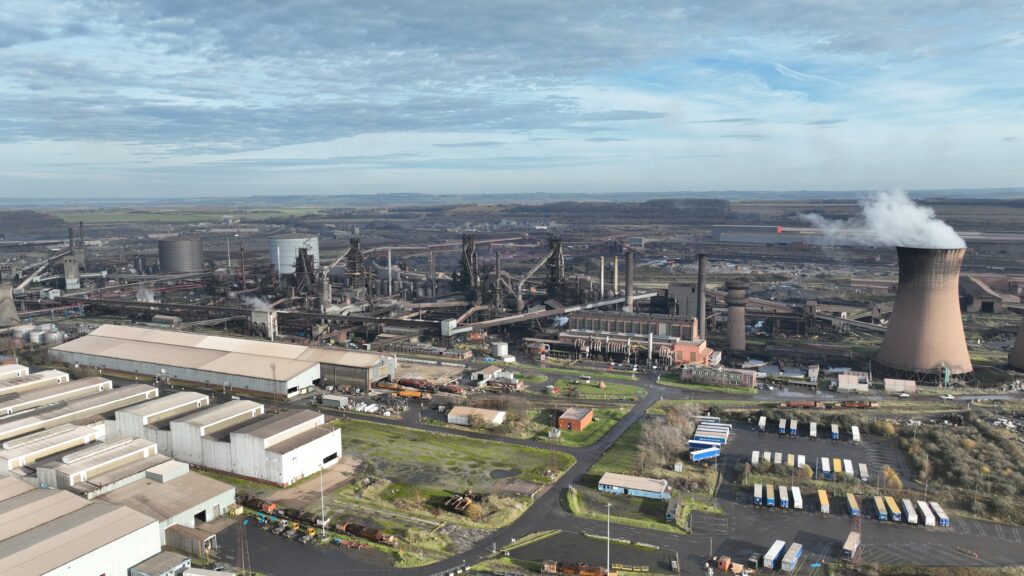The UK government has assumed control of British Steel’s Scunthorpe plant after an urgent bill passed through Parliament in one day. This move comes in response to the threat of the steel plant being shut down by its Chinese owners, Jingye Group. The facility, which provides steel for vital industries, supports around 2,700 jobs. The crisis in Scunthorpe represents a crucial turning point for the UK’s steel industry.
Urgent Measures to Prevent Shutdown
Business Secretary Jonathan Reynolds informed MPs that the government was taking immediate action to prevent the closure of the two blast furnaces at the Scunthorpe plant. This would have ended the UK’s ability to produce steel from raw materials, a vital process for the country’s manufacturing sector. The nationalisation of the plant is now seen as a likely next step.
Reynolds told Parliament that he required emergency powers to keep the plant operational. The swift action follows a warning from Jingye that it could shut down operations, which would have devastating consequences for the UK’s steel production and the broader industrial sector.
In response to the emergency, Parliament was recalled from its Easter break on Saturday. MPs and Lords debated and passed the bill, which received Royal Assent later that day. Government officials are now on-site in Scunthorpe, managing operations and ensuring production continues. This bold intervention aims to safeguard jobs and protect the UK steel industry at a time of crisis.
Prime Minister Starmer Commits to Protecting Jobs
Prime Minister Sir Keir Starmer publicly supported the government’s decision to intervene in the crisis. During a visit to Scunthorpe, Starmer assured workers that the UK government would protect jobs and maintain steel production. He stressed that British-made steel was vital not only to the UK’s economy but also to its industrial future.
Starmer stated, “Steelmaking is not just part of our industrial past but a vital part of our future strength.” His visit coincided with a demonstration by hundreds of steelworkers at Glanford Park, calling for action to save their industry. Rob Barroclough, a steelworker with family ties to the plant, spoke about the hope for the future, despite preparing for the worst.
Tensions Rise Between Steel Plant Owners and Workers
Tensions between British Steel’s owners, Jingye, and the workers in Scunthorpe escalated leading up to the government’s intervention. On the Saturday morning before the bill passed, police were called to the steelworks after a suspected disturbance. Jingye officials, who had visited the site frequently in recent days, found their vehicle entry blocked by security systems. Law enforcement officers conducted checks but made no arrests.
The growing tension had been fueled by Jingye’s reluctance to invest in the plant or pay for existing orders. Reports suggested the owners were preparing to halt production altogether, a move that could have permanently ended UK steelmaking. Despite this, the Chinese-owned company still legally owns the Scunthorpe facility, even though the government now holds broad authority to manage its operations.
Nationalisation on the Horizon?
Reynolds has indicated that no private companies are willing to invest in the Scunthorpe steelworks, and full nationalisation may be the only solution. The government has signaled that it will purchase the plant at a fair price, although it may be effectively worth nothing. Taxpayer money will likely be required to sustain operations at the facility, but Reynolds defended the decision, arguing that steel production is vital to the UK’s economic security and identity.
“There is no alternative to protecting this plant for national interest,” Reynolds stated. He explained that Jingye had refused to take necessary actions to maintain production, including purchasing raw materials to keep the blast furnaces running. Without the intervention, the steel industry in the UK could have faced an irreversible collapse.
Calls for Broader Action and Reform
The UK government’s move has sparked a wide range of reactions from politicians. Reform UK’s deputy leader Richard Tice has called for the full nationalisation of British Steel. Several Conservative MPs have echoed this sentiment, urging the government to take full control of the sector to prevent further closures.
Liberal Democrat MP Daisy Cooper supported the recall of Parliament but stressed the importance of using the new powers responsibly. On the other hand, former Labour leader Jeremy Corbyn called for the nationalisation of all UK steel facilities, highlighting the strategic importance of steel for future industries, including green technologies like wind turbines and electric trains.
Green MP Ellie Chowns also advocated for greater government control of the steel sector, emphasizing its critical role in the UK’s green transformation. She argued that the government should use its power to invest in modernising the sector and create sustainable, green jobs.
Criticism of Government’s Focus on Scunthorpe
Some critics have questioned why the Scunthorpe plant received emergency government support while other steel facilities in the UK did not. Plaid Cymru’s Liz Saville Roberts expressed disappointment, arguing that it was a “bitter day for Wales” as the Welsh Tata Steel plant in Port Talbot did not receive similar protection.
Scottish National Party (SNP) leader Stephen Flynn also expressed concerns, asking why similar legislation was not applied to threatened Scottish sites. Reynolds responded by noting that Scunthorpe’s case was unique, with the plant’s specific circumstances requiring immediate intervention.
A Defining Moment for UK Industry
As tensions continue to rise, the UK government faces critical questions about its future industrial strategy. Should the UK continue to make steel domestically, or is it better to rely on imports from abroad? As these decisions unfold, the role of British Steel—and whether it will remain under government control—will be central to the country’s industrial future.
The decision to intervene at Scunthorpe marks a turning point in the UK’s steel industry. With nationalisation on the table, the government’s next steps could reshape the future of manufacturing in Britain.


